KARACHI, Aug 7: Speakers at a seminar on Saturday paid rich tributes to the Bengali poet and thinker, Qazi Nazrul Islam, for his contribution to the Pakistan Movement and uplift of the downtrodden of the sub-continent.
Speakers, including those from Bangladesh, maintained that through his writings and poetry, Qazi reawakened the Muslims of the eastern part of India and made them to realize their national identity. He was a nationalist, who worked against the exploitative system and had humanistic approach, they noted.
The seminar on "Qazi Nazrul Islam and his contribution to Pakistan movement," organized by the department of Bengali of the Karachi University, was presided over by Mahmud Ali, a leader of the former East Pakistan, who preferred to stay in Pakistan after its dismemberment in 1971, presently a federal minister.
Among others, Sarkar Shahabuddin Ahmed, a well known writer, Anwar Zahid, a former minister, and Nurullah, a former parliamentarian of united Pakistan, all from Bangladesh, also graced the seminar.
Qazi Nazrul Islam, born in a poor family in a village in West Bengal in 1899, having a predilection for the spiritual world from his childhood, also wrote stories and songs using together Urdu, Bengali, Persian and Arabic expressions. During his services in a Bengal infantry, he also visited Karachi, where he learnt modalities of Persian and Arabic languages from a moulana from the Punjab in the infantry. He died in 1976 in Dhaka, Bangladesh.
In his presidential remarks, Mr Mahmud Ali said that Qazi's poetry was meant for the Pakistan Movement and creating awareness among the Muslims of India. His work and services for the Muslims would be remembered for long, he added.
Had the constitutional injunction of maintaining two state languages, Urdu and Bengali, in the country been observed by the rulers and politicians, the division of Pakistan could have been averted, he said, adding that the aims of creation of Pakistan could be achieved even today by developing a coordination between Pakistan and Bangladesh.
The dean of the arts faculty of the university, Dr Abuzar Wajidi, said Qazi worked for the uplift of masses and not used his poetry as tool to please elite circles. He called for establishment of Nazrul Chair at the Bengali department.
A visiting scholar from Bangladesh, Sarkar Shahabuddin, presented a comparison of Tagore and Qazi, and maintained that despite being a Muslim Nazrul's poetry was universal in nature. He always defended and safeguarded the national interest, he added.
Introducing Qazi, the national poet of Bangladesh, the in charge of the KU Bengali department, M Abu Tayyab Khan, said that he roamed about the countryside with his followers with his songs, music and inspiring dances. Through the magic of his writing he tried to drive away the feelings of inferiority among the Muslims and unified them.
The chairman of the KU Public Administration department, Dr Syed Humayun, said that though Qazi was generally known as a poet and story writer, he was also a good music composer, who gave music for films as well. He started writing when the Bengali literature was dominated by Rabinder Nath Tagore, but he gave style to Bengali language and incorporated many Persian and Urdu words in it.
Prof Sahar Ansari, former chairman of the KU Urdu department, said Qazi was one of the greatest poets of the first half of the 20th century, who promoted a new poetic trend. He was sensitive to his culture, religion and believed in human equality, he added.
Prof Ansari said that Qazi also translated the poetry of Umer Khayyam and Hafiz Sheerazi in Bengali language. He rendered some Urdu translations of Qazi's works, including Virodhi, Kamal Pasha, undertaken in early decades of the 20th century.
Dr Talat A Wizarat of the International Relations department said that Qazi was a visionary poet and the Muslim Ummah could benefit from his works even today. His was a towering personality, whose poetry had a political dimension also, in addition to mysticism and rebellious thinking.
Prof Tanveer Khalid, chairperson of the Political Science department, and a couple of students, including Mosihur Rehman, also spoke on the occasion.


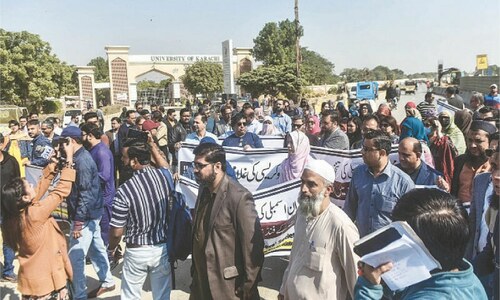













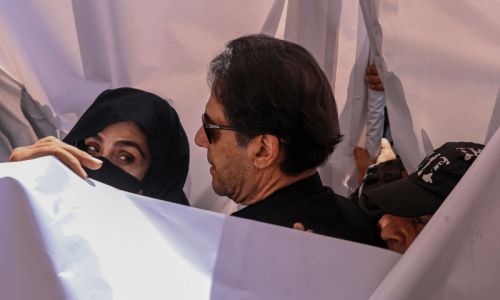















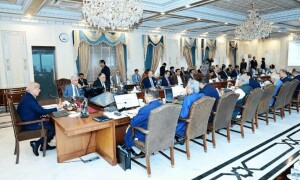

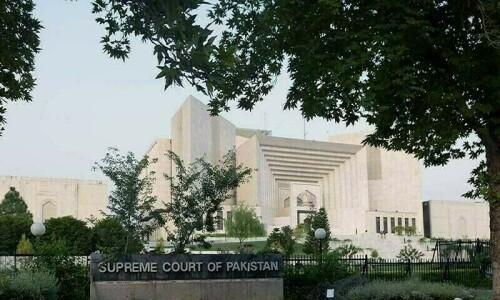


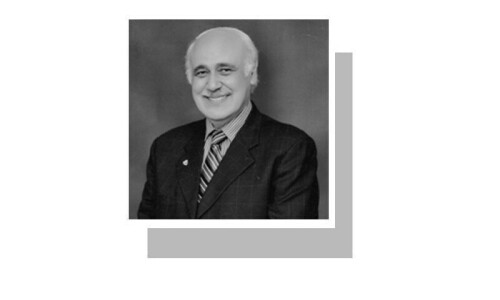


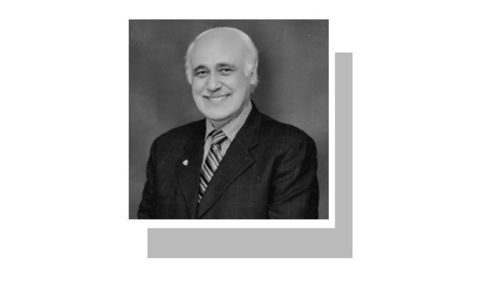
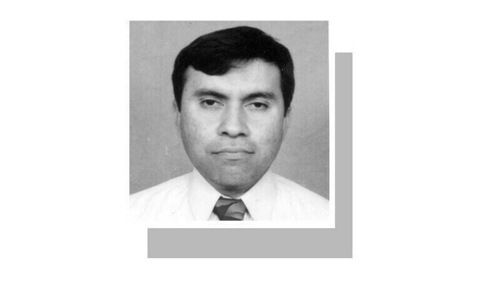

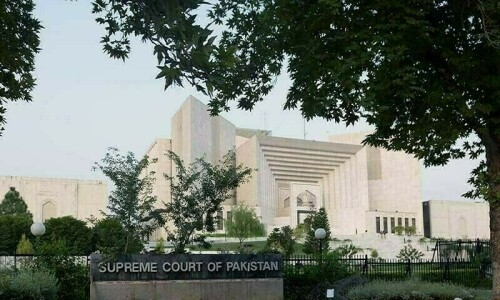


Dear visitor, the comments section is undergoing an overhaul and will return soon.